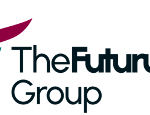Public Cloud computing is a large part of enterprise IT alongside on-premises computing. Many organizations that had a cloud-first approach and are now gaining value from on-premises private clouds and seeing their changing business needs leading to changing cloud use. This episode of the Tech Field Day podcast delves into the complexity of multiple cloud providers and features Maciej Lelusz, Jack Poller, Justin Warren, and host Alastair Cooke, all attendees at Cloud Field Day. The awareness of changing business needs is causing some re-thinking of how businesses use cloud platforms, possibly moving away from using cloud vendor specific services to bare VMs. VMs are far simpler to move from one cloud to another, or between public cloud and private cloud platforms. Over time, the market will speak and if there are too many cloud providers, we will see mergers, acquisitions or failures of smaller specialized cloud providers. In the meantime, choosing where to put which application for the best outcome can be a challenge for businesses.
AI Data Infrastructure Field Days – What We Can Take Away
In this research note, Camberley Bates shares insights from the AI Data Infrastructure Field Day event, highlighting significant takeaways that can transform our approach to managing AI data infrastructure. The discussion focused on innovative solutions and strategies that are shaping the future of AI deployments, stressing the importance of adapting to rapidly evolving technological landscapes. These events serve as a crucial platform for IT professionals to gain knowledge on optimizing infrastructure to effectively support AI functions and applications. This note was written for The Futurum Group following AI Data Infrastructure Field Day 1.
Refocusing on Hybrid-Cloud at Cloud Field Day 21
Cloud Field Day will be live on October 23rd and 24th, focusing on the evolving approach to cloud, recognizing that not all applications belong on a public cloud and embracing hybrid and multi-cloud solutions. The event will emphasize the shift in understanding cloud as an operating model rather than just a location, with cloud-native technologies integrating into both public clouds and on-premises data centers. Companies like Platform9, Qumulo, HYCU, and VMware by Broadcom will showcase solutions for cloud management, cross-cloud storage, data protection, and private cloud adoption, while discussions will address key challenges in hybrid and multi-cloud environments. Attendees can watch live and engage with experts as they explore the future of cloud technologies.
Nokia Unleashes EDA to Automate AI Era Data Centers
Nokia is leading the charge in next-generation data center solutions with the launch of its Extreme Data Automation (EDA) platform, which is designed to meet the demands of the AI era. The EDA platform streamlines operations through advanced automation tools, enhancing efficiency and reducing the operational complexities and costs associated with large-scale data center management. This innovation underscores Nokia’s commitment to supporting the infrastructure needs of data-intensive industries, facilitating improved performance and sustainability in enterprise IT environments. Read more in this research note from Ron Westfall of The Futurum Group following our Networking Field Day Exclusive event with Nokia.
Edgy Hardware Matters – Orange boxes from OnLogic
Alastair Cooke discusses the significance of OnLogic’s new rugged hardware, highlighting its capability to perform consistently in challenging environments. He emphasizes the critical role such robust systems play in industries requiring reliable operation despite physical stresses. By blending modern design with industrial strength, OnLogic’s solutions ensure uninterrupted productivity and efficiency. This article was inspired by the OnLogic presentation at Edge Field Day 3.
The Futurum Group
The Futurum Group is a family of companies with leading tech analysts offering insights + market research to the C-Suite.
The Brave New World of Security Field Day 12
Security Field Day is coming your way October 16-17, 2024 in San Francisco! Read on to learn more about the presentation lineup and topics of interest from DigiCert, Dell, SonicWall, and Citrix.
Elastic Improves Search Experience With Additions to Its Vector Database
Sulagna Saha recently covered Elastic’s enhancement to its vector database, aimed at improving search experiences for users. The update includes new features that streamline the integration of machine learning models with vector-based search capabilities. This advancement promises to refine accuracy and speed in retrieving search results, potentially transforming data retrieval processes across various industries. Read more in this Techstrong AI article inspired by the Elastic presentation at AI Field Day 5.
Massively scalable, highly available, applications at the edge with Avassa
Alastair Cooke considers the significance of deploying applications at the edge, emphasizing the necessity for massive scalability and high availability provided by Avassa’s platform. He highlights how Avassa facilitates the management of applications directly at the edge, enhancing performance and resilience. Cooke’s analysis showcases the potential benefits in operational efficiency and user experience improvements in distributed computing environments. Read more in this LinkedIn Pulse article inspired by Avassa’s Edge Field Day 3 presentation.
GitOps at the VMware Software Defined Edge
Alastair Cooke highlights the integration of GitOps practices at VMware’s Software Defined Edge, focusing on enhancing operational efficiency and deployability. By leveraging GitOps, VMware aims to streamline the management of edge computing resources, ensuring more consistent, secure, and automated deployments. The approach underscores the company’s commitment to adopting modern development practices to optimize and secure edge computing environments. Read more in this LinkedIn Pulse article by Alastair Cooke following VMware’s presentation at AI Field Day 5.
Exploring the Importance of Data Infrastructure at AI Data Infrastructure Field Day 1
At next week’s AI Data Infrastructure Field Day, our panel of delegates will explore the critical role of robust data architectures in powering AI applications. Tune in Wednesday and Thursday as we learn about the latest data infrastructure solutions from Solidigm, Google Cloud, Pure Storage, HPE, MinIO, and Infinidat. The sessions will be live-streamed on LinkedIn and Techstrong TV and posted to YouTube afterward.
Exploring the Importance of Solid Data Infrastructure at AI Data Infrastructure Field Day 1
The use of artificial intelligence technology is taking hold in the enterprise, and many are discovering the importance of a solid data infrastructure for these new applications. No matter what model or technology is used, or whether it’s part of training or inferencing or RAG, data is the foundation for productive AI applications. That’s why the next Tech Field Day event will focus on AI Data Infrastructure, serving as a companion to our recent AI Field Day event, happening October 2 and 3. This event will feature presentations from MinIO, Google Cloud, HPE, Infinidat, Solidigm, and Pure Storage.
Hyperscale AI networks with Arista at AI Field Day
Arista Networks highlighted the need for enhanced network infrastructures at AI Field Day, focusing on the challenges of supporting complex AI models with higher bandwidth and lower power consumption. They introduced innovative solutions like Distributed Etherlink Switches to manage congestion and low-power optics to boost bandwidth, aimed at large-scale AI networks prevalent in heavy GPU environments. Additionally, Arista showcased their Cloud Vision management system, which leverages AI to simplify network operations, proving their dedication to evolving network technologies in accordance with the growing demands of AI workloads. Read more in this LinkedIn Pulse article by Alastair Cooke, who attended the Arista presentation at AI Field Day 5.
Enfabrica SuperNIC for massive clusters at AI Field Day
At AI Field Day, Enfabrica introduced its Accelerated Compute Fabric SuperNIC (ACF-S), aimed at enhancing connectivity in large compute clusters. The ACF-S features innovative integration with hardware accelerators like GPUs, supporting high bandwidths with a multi-layer crossbar switch capable of handling 5Tbps for PCIe and 3.2Tbps for Ethernet. This technology is set to boost load balancing, fault tolerance, and scalability, crucial for training complex language models, and is expected to transition into a more adaptable PCIe card format. Read more in this LinkedIn Pulse article by Alastair Cooke, who attended the Enfabrica presentation at AI Field Day 5.
Hardware Still Matters at the Edge
Hardware innovation at the edge is driven by diverse and challenging environments found outside traditional data centers. This episode of the Tech Field Day podcast features Jack Poller, Stephen Foskett, and Alastair Cooke considering the special requirements of hardware in edge computing prior to Edge Field Day this week. Edge locations, including energy, military, retail, and more, demand robust, tamper-resistant hardware that can endure harsh conditions like extreme temperatures and vibrations. This shift is fostering new hardware designs, drawing inspiration from industries like mobile technology, to support real-time data processing and AI applications. As edge computing grows, the interplay between durable hardware and adaptive software, including containerized platforms, will be crucial for maximizing efficiency and unlocking new capabilities in these dynamic environments.
Cisco Ethernet and validated designs at AI Field Day
At AI Field Day, Cisco demonstrated its latest advancements in Ethernet technology and validated designs, underscoring the importance of sturdy network infrastructure for AI applications. Their presentation focused on the improved performance, scalability, and security of their Ethernet solutions, designed to help organizations efficiently utilize AI. This initiative exhibited Cisco’s dedication to innovation in networking and artificial intelligence, ensuring enterprises have the reliable network performance needed to optimize their AI investments. Read more in this LinkedIn Pulse article by Alastair Cooke.
AIFD5 Recap
In this LinkedIn video, Mitch Ashley discussed how major tech vendors like VMware and Elastic are incorporating AI, ML, and GenAI into their business strategies. He highlighted the unique approaches these companies take in integrating advanced technologies into their operational frameworks and products. Ashley’s analysis underscores the rapid pace of technological innovation fueled by advancements in artificial intelligence.
Taking Technology to the Edge at Edge Field Day 3
Join us for Edge Field Day on September 18th and 19th, streaming live on LinkedIn and TechStrong.TV! Hear from leading companies like VMware, Avassa, TSecond, ZEDEDA, and OnLogic, and catch special presentations from our delegates and analysts. Tune in live on LinkedIn and Techstrong TV or watch the recordings on YouTube and the Tech Field Day website.
VMware Private AI at AI Field Day
At AI Field Day, VMware focused on private AI solutions, delivering a secure, controlled deployment environments for AI models. VMware’s infrastructure and cloud technologies are leveraged to ensure compliance and security while enabling businesses to capitalize on AI advancements. The presentation underlined the tailored benefits and potential industry-specific solutions offered by VMware’s private AI initiatives. Read more in this LinkedIn Pulse article by Alastair Cooke.
Elastic brings Vectors to Semantic Search at AI Field Day 5
At AI Field Day 5, Elastic introduced an enhancement to its semantic search capabilities by integrating vector search. This new feature not only supports the creation and storage of vector data but also facilitates the use of multiple embedding models, improving memory efficiency through techniques like quantization. These advancements significantly enhance the precision and relevance of search results, positioning Elastic as a crucial player in the development and testing of Large Language Model applications and related technologies. Read more in this LinkedIn Pulse article by Alastair Cooke.












